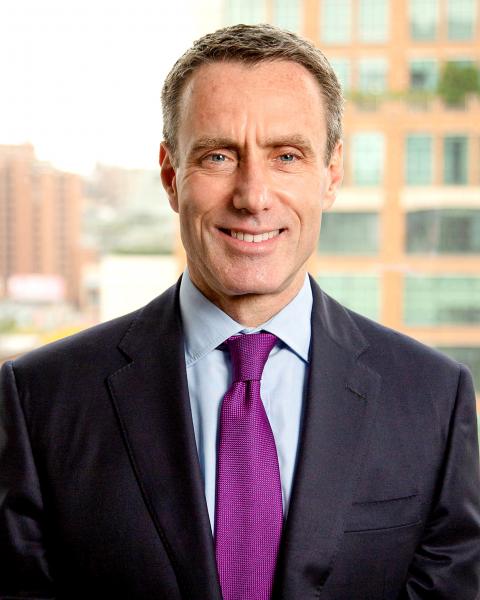Citigroup Inc yesterday announced the appointment of Peter Babej as its new chief executive officer for the Asia-Pacific region.
Babej will be responsible for all businesses in the 17 countries and jurisdictions where Citi is present.
Before his current role, Babej served as global head of the Financial Institutions Group. Under his leadership, Citi attained a leading position in the sector and participated in numerous landmark transactions globally.

Photo courtesy of Citibank Taiwan Ltd
Over the past decade, Citi has won increasing recognition as the leading global bank for financial institutions. Under Babej’s leadership, the group has participated in some of the most significant transactions in the sector, including several Asia-driven mergers and acquisitions.
Bebej will draw on his deep knowledge of the financial services landscape in Asia, where Citi continues to see great opportunities, including fast-growing digital adoption, for which it is well-positioned given its footprint and capabilities.
Prior to joining Citi, Babej held senior roles at Deutsche Bank AG and Lazard Ltd, where he advised financial institutions across North America, Europe and Asia.
Babej will begin transitioning to this new role immediately.
Citi has performed strongly in the Asia-Pacific region. The company released its third-quarter results on Tuesday, which showed that revenue grew 7 percent year-on-year to US$4.01 billion and net income rose 10 percent to US$1.27 billion during the same period.
Asia Pacific is Citi’s second-largest region outside North America and contributes about one-fifth of revenue and close to a third of net income.

Taiwan’s foreign exchange reserves hit a record high at the end of last month, surpassing the US$600 billion mark for the first time, the central bank said yesterday. Last month, the country’s foreign exchange reserves rose US$5.51 billion from a month earlier to reach US$602.94 billion due to an increase in returns from the central bank’s portfolio management, the movement of other foreign currencies in the portfolio against the US dollar and the bank’s efforts to smooth the volatility of the New Taiwan dollar. Department of Foreign Exchange Director-General Eugene Tsai (蔡炯民)said a rate cut cycle launched by the US Federal Reserve

Handset camera lens maker Largan Precision Co (大立光) on Sunday reported a 6.71 percent year-on-year decline in revenue for the third quarter, despite revenue last month hitting the highest level in 11 months. Third-quarter revenue was NT$17.68 billion (US$581.2 million), compared with NT$18.95 billion a year earlier, the company said in a statement. The figure was in line with Yuanta Securities Investment Consulting Co’s (元大投顧) forecast of NT$17.9 billion, but missed the market consensus estimate of NT$18.97 billion. The third-quarter revenue was a 51.44 percent increase from NT$11.67 billion in the second quarter, as the quarter is usually the peak

The US government on Wednesday sanctioned more than two dozen companies in China, Turkey and the United Arab Emirates, including offshoots of a US chip firm, accusing the businesses of providing illicit support to Iran’s military or proxies. The US Department of Commerce included two subsidiaries of US-based chip distributor Arrow Electronics Inc (艾睿電子) on its so-called entity list published on the federal register for facilitating purchases by Iran’s proxies of US tech. Arrow spokesman John Hourigan said that the subsidiaries have been operating in full compliance with US export control regulations and his company is discussing with the US Bureau of

Pegatron Corp (和碩), a key assembler of Apple Inc’s iPhones, on Thursday reported a 12.3 percent year-on-year decline in revenue for last quarter to NT$257.86 billion (US$8.44 billion), but it expects revenue to improve in the second half on traditional holiday demand. The fourth quarter is usually the peak season for its communications products, a company official said on condition of anonymity. As Apple released its new iPhone 17 series early last month, sales in the communications segment rose sequentially last month, the official said. Shipments to Apple have been stable and in line with earlier expectations, they said. Pegatron shipped 2.4 million notebook